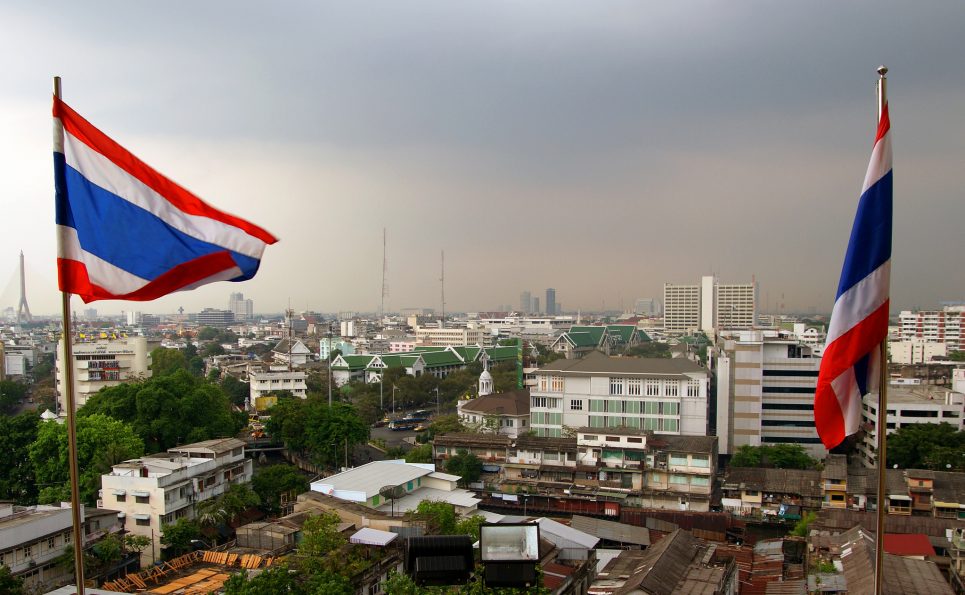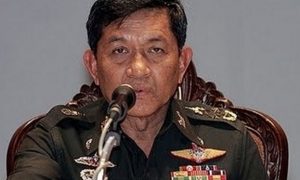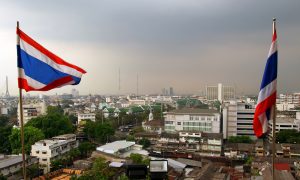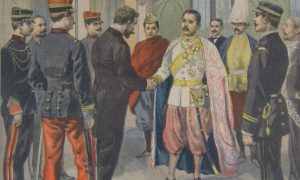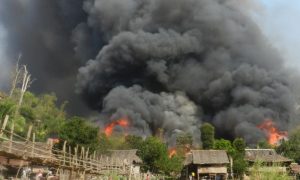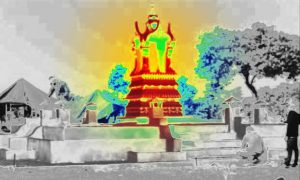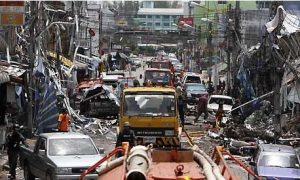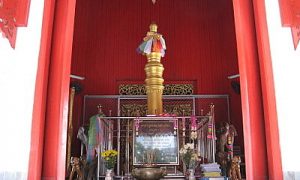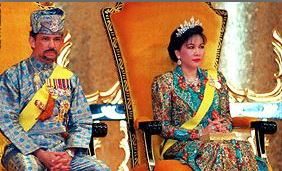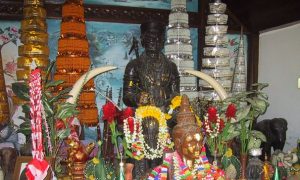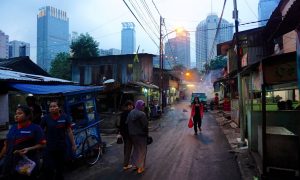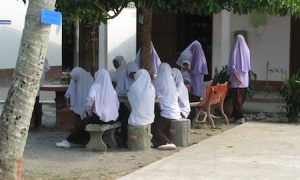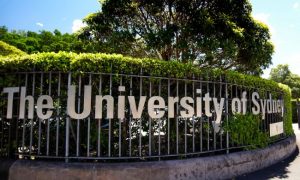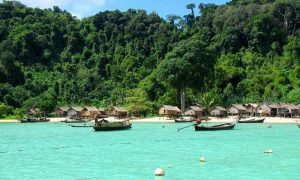A new book traces the role of the police and the military in the modern political history of Thailand.
What’s brewing in Thailand?
Jim Taylor reports on rising tensions in Thailand following Yingluck's landmark democracy speech in Mongolia.
Subjects of the state
The problem with many countries in Asia is that politicians and unelected leaders view their populace as subjects rather than as individuals whose rights are worth preserving.
Loyalty demands dissent, history demands scrutiny
Despite the 'real' narrative of history, we find ourselves still accepting the arguments of 'older' generations.
What caused the Mae Surin fire?
One month after 38 people were killed in a fire at Mae Surin refugee camp in Thailand's Mae Hong Son province, disturbing theories about the cause of the blaze are emerging.
Thai spirits not welcome in Myanmar
A report from Rangoon that Thai spirits are encountering resistance in their efforts to extend their power into Myanmar.
Rebellions and borders: call for papers
An invitation to participate in a panel at the 2014 International Conference on Thai Studies exploring the role of rebellions in shaping the modern borders of Thailand.
Don’t forget home
The city of Boston is literally on the other side of the globe yet many that contributed to the inundation of my Facebook wall acted as if it were their home town that was attacked by yet-to-be-named terrorists.
Interview with Joe Gordon: Lèse majesté and democracy
Kyoto University's Pavin Chachavalpongpun interviews Joe Gordon, an American who was imprisoned for lèse majesté
Thailand’s royal histories
Andrew Walker writes about the contested history of the last king of Phrae, and what this might mean for royal power in contemporary Thailand.
New work on Southeast Asian monarchies
The current issue of Kyoto Review of Southeast Asia deals with the sensitive, yet significant, topic of monarchies in the region
Why Thailand needs its kings
Cod Satrusayang is right. There is a natural fit between Thai culture and royalty. Thai culture needs its king. So why only one?
Why Thailand needs its king
Bangkok-based writer Cod Satrusayang makes an argument for retaining Southeast Asia's most famous monarchy.
Cross-border Shan: Naw Kham and Twet Nga Lu
Since modern borders were first established in the Mekong region, opportunists like Naw Kham have used them to pursue their own economic and political agendas.
The KL process
James Bean argues that the Thai government is making the right moves in pursuing a constructive dialogue on peace in the southern provinces.
Forced disappearance in Southeast Asia
Join members of the ANU College of Asia and the Pacific to mark the anniversary of Somchai Neelaphaijit’s disappearance through a discussion of forced disappearance in Southeast Asia.
Desperately seeking success
Murray Hunter examines the prospects for peace in the far south of Thailand following the February 28 agreement.
Islamic education’s desperate plight
The Pakistan-based Taliban are helping fund schools in southern Thailand, according to Murray Hunter.
Campaigning on lèse-majesté
If outrage at the lèse-majesté law drives some academic research and writing, some of it may be better for it and reveal that speaking the truth is noble.
Thai studies in Sydney
Panel proposals for the Twelfth International Conference on Thai Studies (April 2014, Sydney University) close at the end of this month.
The Three Thousand Year Old Wave
In the wake of the 2004 tsunami some Moken believed the path was clear for them to create a revitalised identity.
Thai love between the pages
A special Book Zone post for Valentine's Day, celebrating the theme of love in our National Library of Australia Thai collection
Western campaigners and lèse-majesté
We need to be careful that we don’t provide Thai ultra-royalists with exactly the image of the interfering Westerner they are seeking.
 Facebook
Facebook  Twitter
Twitter  Soundcloud
Soundcloud  Youtube
Youtube  Rss
Rss 